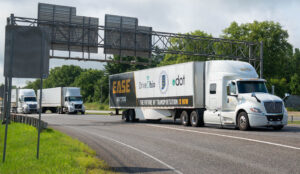MADISON, Wis. — Wisconsin Gov. Tony Evers signed bipartisan bills Wednesday designed to jump-start creation of an electric vehicle charging network along the state’s interstate system and major highways.
The new laws free up nearly $80 million in federal construction aid and makes it easier for gas stations, convenience stores and other businesses to operate the electric vehicle charging stations. The measures were backed by businesses and environmentalists alike and cheered as a way for Wisconsin to expand its electric vehicle charging network.
The funding is designed to support Level 3 charging stations, which will allow for passenger electric vehicles to be recharged in less than an hour. Lower level chargers are designed to recharge a vehicle overnight or throughout the day.
Federal guidance calls for stations no more than 50 miles apart.
“Electric vehicle drivers in Wisconsin will soon be able to travel about 85 percent of our state highway system and never be more than 25 miles away from a charger,” Wisconsin Transportation Secretary Craig Thompson said in a statement Wednesday.
Wisconsin currently has nearly 580 publicly accessible electric vehicle charging stations. The state Department of Transportation has said it expects to use the $78.7 million in federal grants to support building 65 high-speed charging stations in key corridors using the federal funding unlocked through enactment of the new laws.
One bill Evers signed allows for the creation of an EV infrastructure program to help businesses construct charging stations over the next five years. The grants would cover up to 80% of costs; grant recipients would have to put up the remaining 20%.
The funding was part of $7.5 billion included in the 2021 infrastructure law passed to meet President Joe Biden’s goal to build a national network of 500,000 publicly available chargers by 2030. The charging ports are a key part of Biden’s effort to encourage drivers to move away from gasoline-powered cars and trucks that contribute to global warming.
But progress on the network has been slow. Ohio and New York are the only states that have opened charging stations under the National Electric Vehicle Infrastructure program. As of mid-January, a total of 28 states, plus Puerto Rico, have either awarded contracts to build chargers or have accepted bids to do so.
EV charging stations must charge customers by the amount of electricity used, known as a kilowatt-hour. Selling by the killowatt-hour is similar to fueling a vehicle with gasoline.
Wisconsin law only allows utilities to charge per kilowatt-hour. That means any business that wanted to offer a charging station would have to be regulated as a utility.
In order to access the federal money, an exemption to that law was needed. The bill Evers signed allows private businesses to sell electricity at the charging stations by kilowatt-hour and not be regulated as a utility.
Users of the charging stations would be charged a 3-cent-per-kilowatt-hour tax. Local government entities and state agencies would not be allowed to operate public charging stations but could run their own stations to charge their vehicles.
“We don’t have to choose between protecting our environment and natural resources or creating good-paying jobs and infrastructure to meet the needs of a 21st-Century economy — in Wisconsin, we’re doing both,” Evers said in a statement.
The Associated Press is an independent global news organization dedicated to factual reporting. Founded in 1846, AP today remains the most trusted source of fast, accurate, unbiased news in all formats and the essential provider of the technology and services vital to the news business. The Trucker Media Group is subscriber of The Associated Press has been granted the license to use this content on TheTrucker.com and The Trucker newspaper in accordance with its Content License Agreement with The Associated Press.








